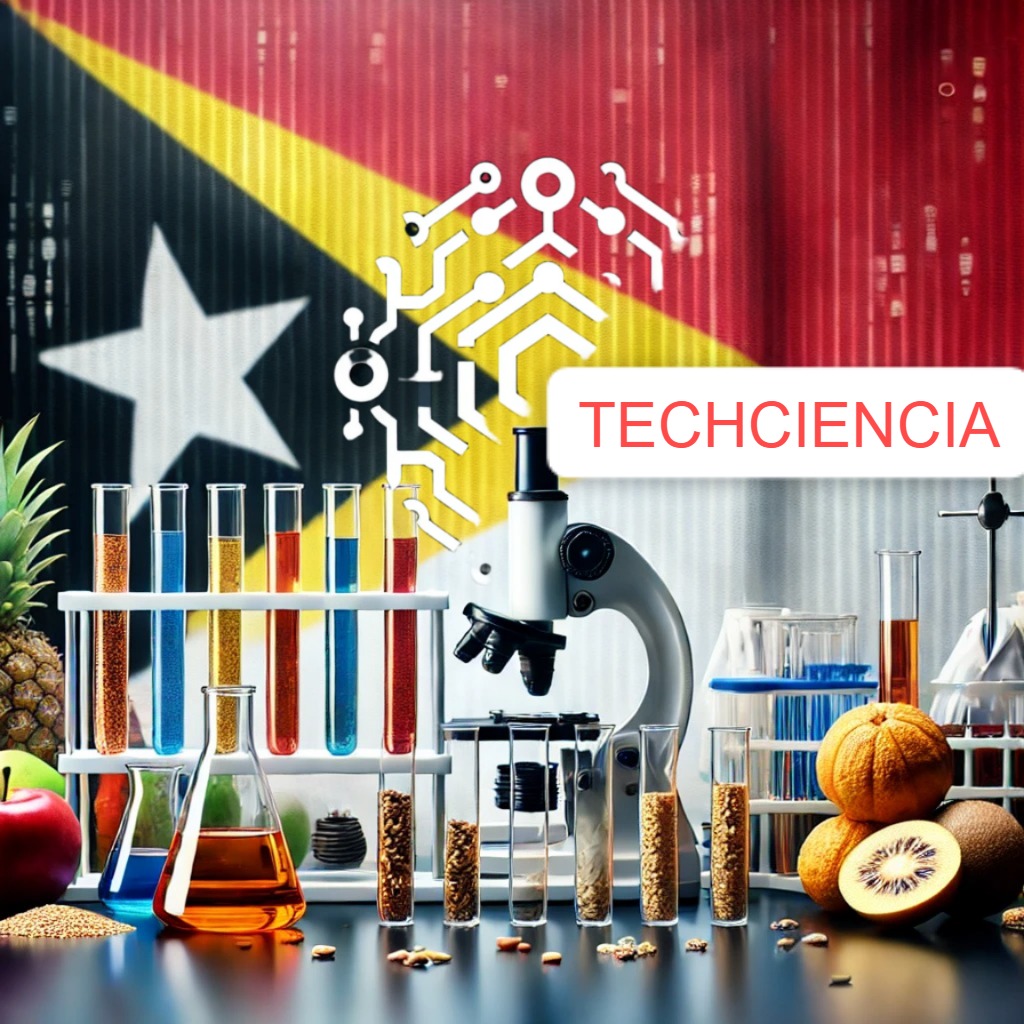Introduction
Food security is a fundamental challenge for any nation, especially for developing countries like Timor-Leste, where a large part of the food is imported. However, due to the lack of analytical laboratories in the country, the food that reaches the shelves poses a significant risk to public health. Without the capacity to verify the quality and safety of both imported and locally produced food, the country is vulnerable to outbreaks of foodborne diseases, contamination, and even economic losses.
In recent years, Timor-Leste has made significant progress in training qualified professionals in fields such as food science, agriculture, and environmental management. These skilled workers, along with chemistry professionals, represent a valuable resource that could be fully utilized if analytical laboratories were established, following international standards to ensure accuracy and reliability. The IQTL.IP (Instituto para a Qualidade de Timor-Leste), in partnership with UNIDO, has established the first calibration laboratory, which is a valuable step forward. However, from a public health and food safety perspective, a laboratory for analysis, control, and quality should have been the priority, as it directly impacts the safety of the food consumed by the population and the quality of products circulating in the market. The funds used to implement the calibration laboratory would have been more effectively invested in the creation of a laboratory of analysis to address these urgent needs.
The IQTL.IP and AIFAESA.IP play a crucial role in this context, as it is their responsibility to pursue the implementation of national laboratories that meet international standards. By adopting global best practices, the country can ensure that its laboratories meet the highest quality benchmarks. The combination of local expertise and the support of specialized partners in implementing laboratories aligned with international norms, would not only ensure safer food but also create new opportunities for professional development and economic growth.
Critical questions for reflection:
Who guarantees that the imported products are truly safe for consumption?
Did these foods follow rigorous inspection procedures?
Who takes responsibility for ensuring that these products do not put the population at risk?
The Role of Laboratories in Food Safety
Analytical laboratories are essential for ensuring that the food consumed is safe and of high quality. These laboratories perform a wide range of tests, including physico-chemical analyses to verify the nutritional composition of food. This includes measuring macronutrients (such as proteins, carbohydrates, and fats), micronutrients (such as vitamins and minerals), and other important components like fiber and additives.
Microbiological analysis tests, for example, are used to detect pathogenic agents such as E. coli and other harmful bacteria. In addition, laboratories assess contaminants like pesticides, heavy metals, and monitor the migration of plasticizers from packaging materials into food. By evaluating the shelf life of products, laboratories ensure that food maintains its safety and quality throughout its intended storage period, up to the point of consumption.
In a country where imported foods represent a significant portion of the food supply, the existence of quality control laboratories is vital to protect public health. Without these laboratories, many products enter Timor-Leste without rigorous inspection of their sanitary conditions, posing a risk of contamination and outbreaks of foodborne diseases.
Benefits for Public Health and Education
The creation of analytical laboratories in Timor-Leste will allow the government to implement a robust food quality control system. With laboratories in operation, it will be possible to periodically test the foods before entering the market, detecting any problems early. It will also allow the continuous monitoring of products already on the shelves, ensuring ongoing compliance with safety standards.This will ensure that unsafe products are removed from circulation before they can affect the population.
Additionally, the laboratories will play a crucial role in educating the population about food risks. Based on the results of the analyses, the population will gain a clear understanding of the foods they consume, whether imported or locally produced. Through the knowledge based on laboratory data interpretation, it will empower consumers to make informed decisions and promote healthier dietary choices.
Strengthening Food Sovereignty
An effective quality control system will also strengthen Timor-Leste’s food sovereignty. Today, the country heavily relies on imported food, but with local laboratories, the government will be able to promote domestic production of high-quality food, ensuring that local products meet international safety standards. This will not only reduce external dependence but also encourage the development of Timor-Leste’s agricultural sector.
Moreover, the creation of analytical laboratories will pave the way for the emergence of national food industries, providing local businesses with the capacity to produce food with safety and quality competitive in the market. With laboratories ensuring compliance with international standards, Timorese industries will be able to expand their operations and cater to both domestic and international markets.
The analytical laboratories will also allow for the creation of more effective and regulated public policies for the control and monitoring of food quality, ensuring that Timor-Leste can establish a healthy and secure food supply network.
Conclusion
The establishment of analytical laboratories in Timor-Leste is not just a critical step toward ensuring food safety, but a transformative one for the country’s future. By providing the infrastructure necessary to test and monitor both imported and locally produced foods, these laboratories will protect public health, prevent foodborne diseases, and ensure that unsafe products are kept off the shelves.
Beyond the immediate health benefits, these laboratories will strengthen Timor-Leste’s food sovereignty by supporting the development of local industries and reducing the country’s dependence on imported goods. The capacity to produce high-quality, safe food domestically will open up opportunities for economic growth and the expansion of national food industries, allowing local businesses to compete on both domestic and international markets.
In the long term, the creation of these laboratories will also enable the development of more effective public policies related to food safety, helping to ensure that Timor-Leste can build a robust and secure food supply system.

